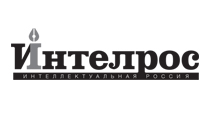
ИНТЕЛЛЕКТУАЛЬНАЯ РОССИЯ
|
|
|
Chapter 17. Storm in the Desert
As the Cold War drew to a close, other problems took its place. None was more
threatening to American interests than Iraqi dictator Saddam Hussein’s invasion
of Kuwait in early August 1990. The Joint Chiefs of Staff had long viewed the
Middle East and Southwest Asia as potential trouble spots, and over the years they
steadily became more mindful of the region’s difficulties. Indicative of the growing
importance they attached to the Middle East was their decision in 1983 to create
a regional planning organization, the U.S. Central Command (USCENTCOM).
While maintaining a limited U.S. presence in the area, USCENTCOM conducted
combined training exercises with friendly countries, bolstered diplomatic support
for U.S. interests, and coordinated multilateral protection of international shipping.
Assuring unfettered access to the Persian Gulf oil fields was normally USCENTCOM’s
top concern. But with the Soviet threat to Europe and an unstable situation
on the Korean peninsula still claiming priority, the JCS had refused to allocate
significant resources to the region on a permanent basis and had dealt with it in ad
hoc fashion as the need arose |
22 августа 2012
Chapter 16. Ending the Cold War
Reagan and Gorbachev met for the last time in New York City in December 1988.
By then the two leaders had developed an easy collaboration that both hoped would
carry over into the presidency of Reagan’s recently elected successor, George H.W.
Bush. A former member of Congress, Director of Central Intelligence, ambassador
to China, and Reagan’s vice president for 8 years, Bush came to the White House
with more practical experience in national security affairs than any President since
Eisenhower. As part of his agenda while in New York, Gorbachev addressed the
UN General Assembly and used the occasion to announce that the Soviet Union
would unilaterally reduce its armed forces by half a million men and withdraw
50,000 troops and 5,000 tanks from Eastern Europe over the next 2 years. Moscow,
Gorbachev insisted, wanted military forces only for defensive purposes and would
use them for nothing else. A dramatic, headline-grabbing gesture, Gorbachev’s announcement
convinced Secretary of State George Shultz that the Cold War was
more than drawing to a close. Indeed, Shultz insisted: "It was over.” |
22 августа 2012
Chapter 15. A New Rapprochement
By the mid-1980s, as Ronald Reagan embarked on his second term, the military
buildup launched at the outset of the decade was beginning to show results. Increasingly
reassured, the Joint Chiefs believed that they had turned the corner and were
now better poised to compete effectively in military power with the Soviet Union
than at any time since the Vietnam War. Despite the re-imposition of congressionally
mandated funding constraints, starting with the FY86 budget, they saw the
balance of forces shifting back in their favor. As always, the JCS wanted more to be
done than available money allowed and urged the President and Congress to be, if
nothing else, consistent in their level of support for military programs. Yet, all things
considered, the buildup seemed to be having the desired effect of restoring both a
stronger defense posture and a renewed respect for the country’s Armed Forces. Not
since the early 1950s had the Nation’s Military Establishment felt so assured. |
22 августа 2012
|
|
|
Последние выпуски бюллетеня "ИНТЕЛРОС - Интеллектуальная Россия"
можно приобрести в магазине "Фаланстер".

|